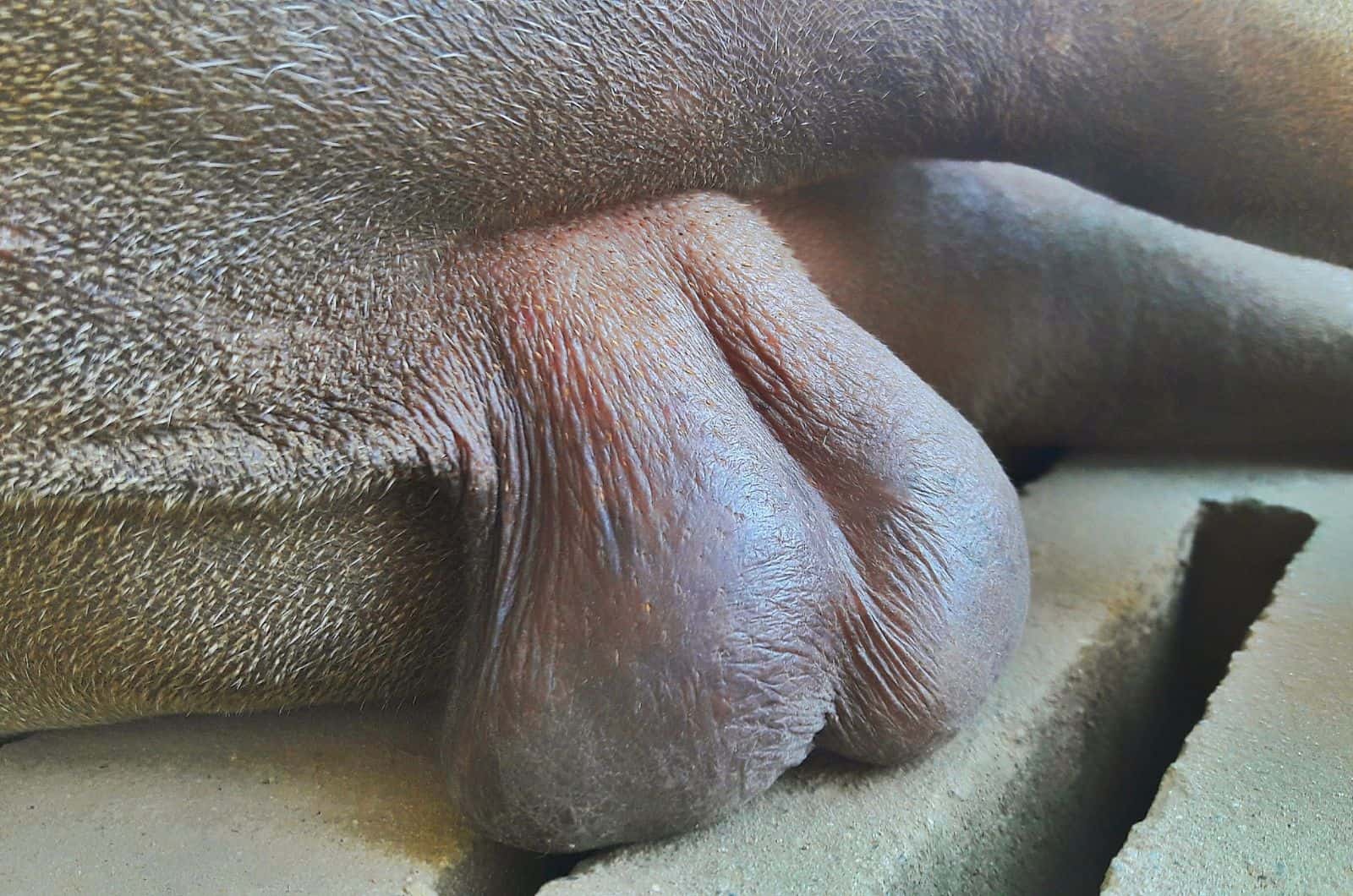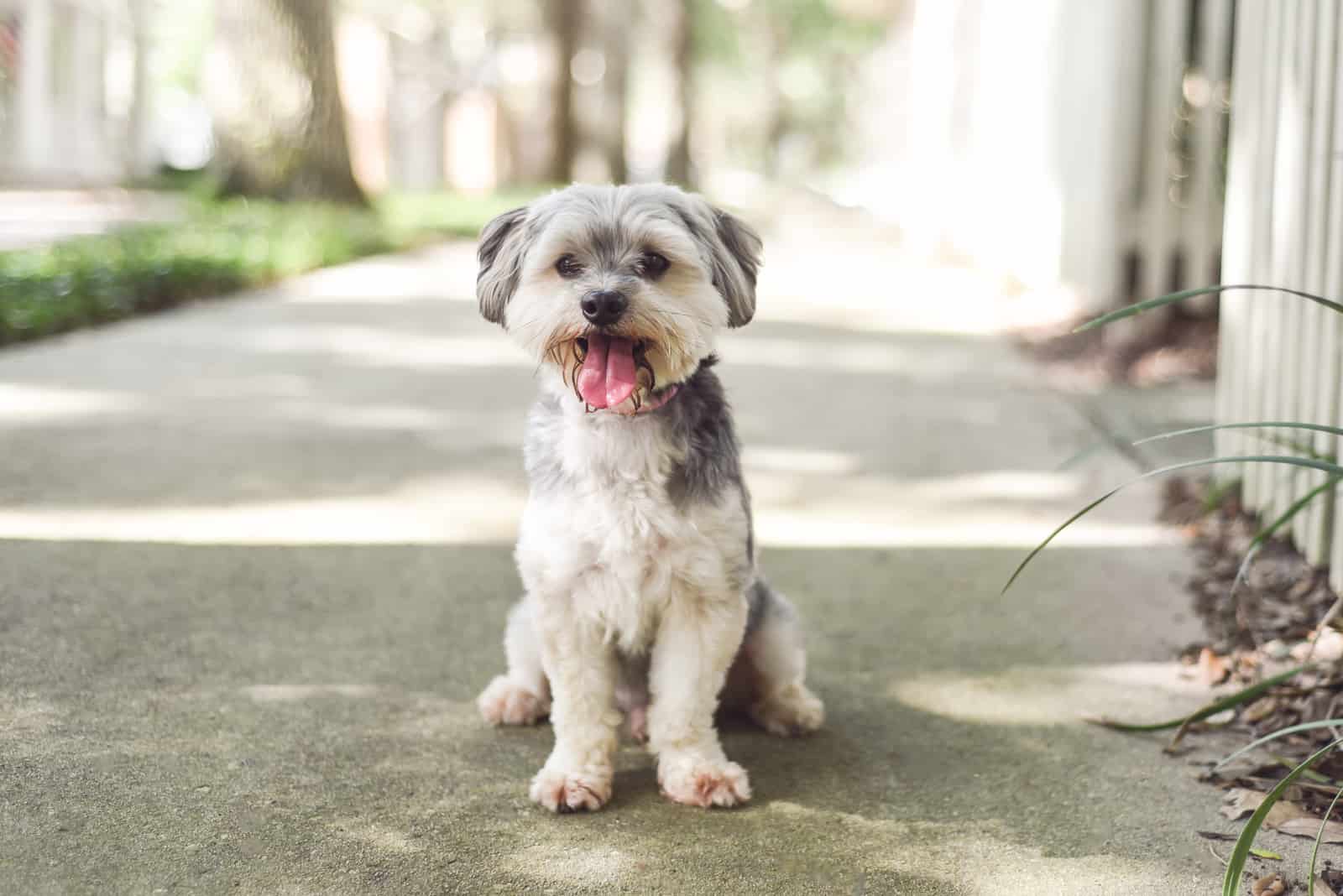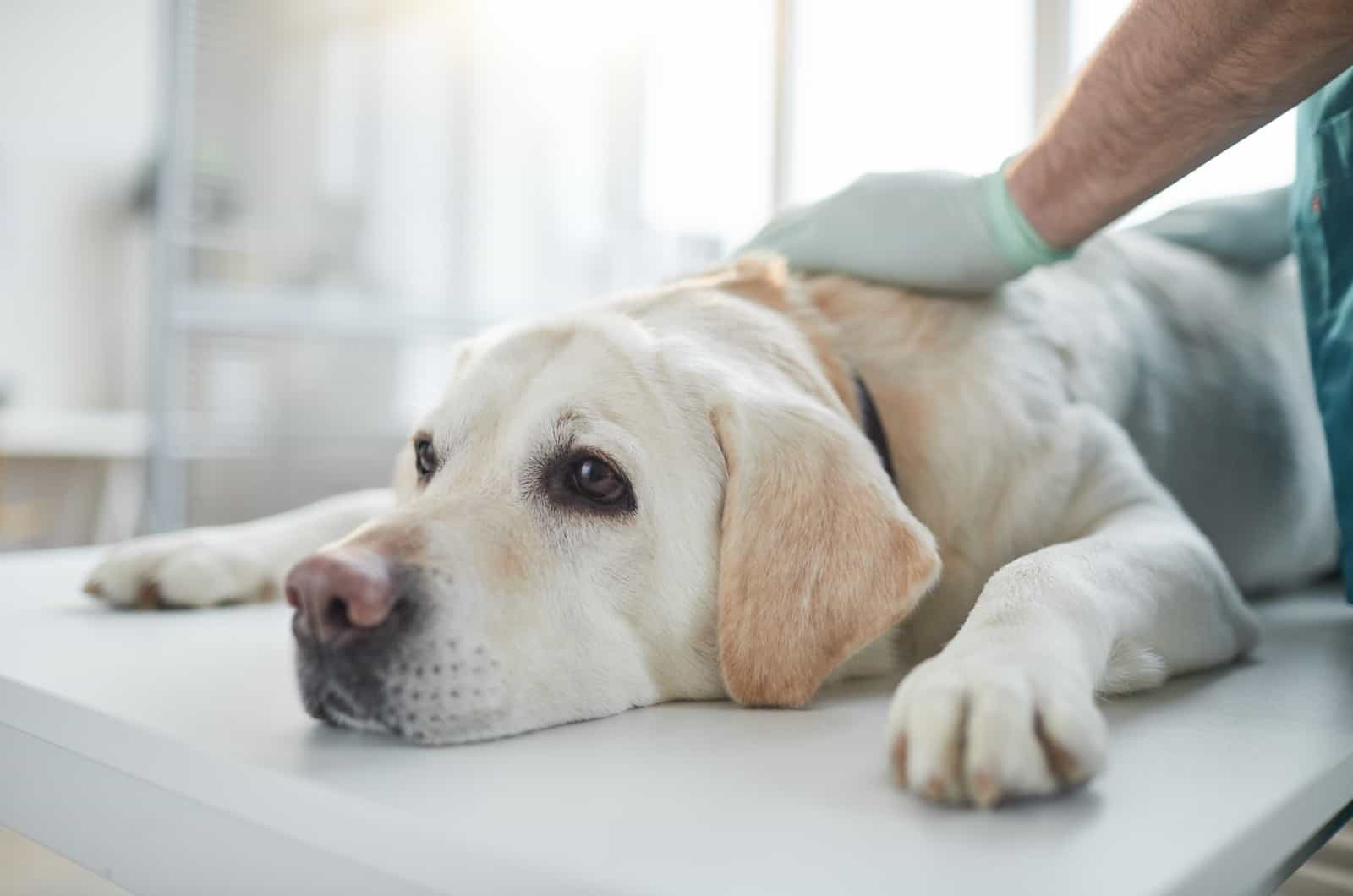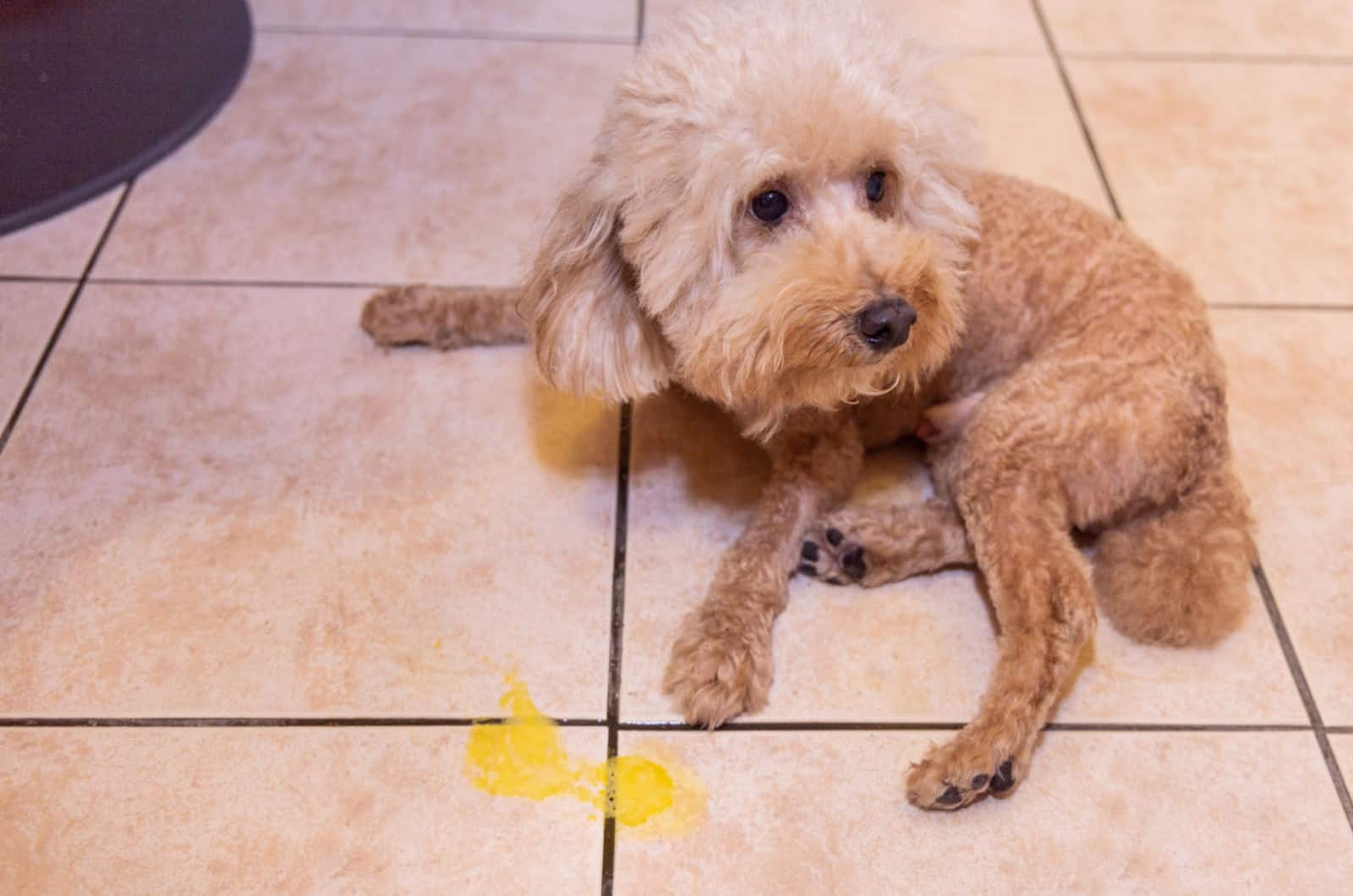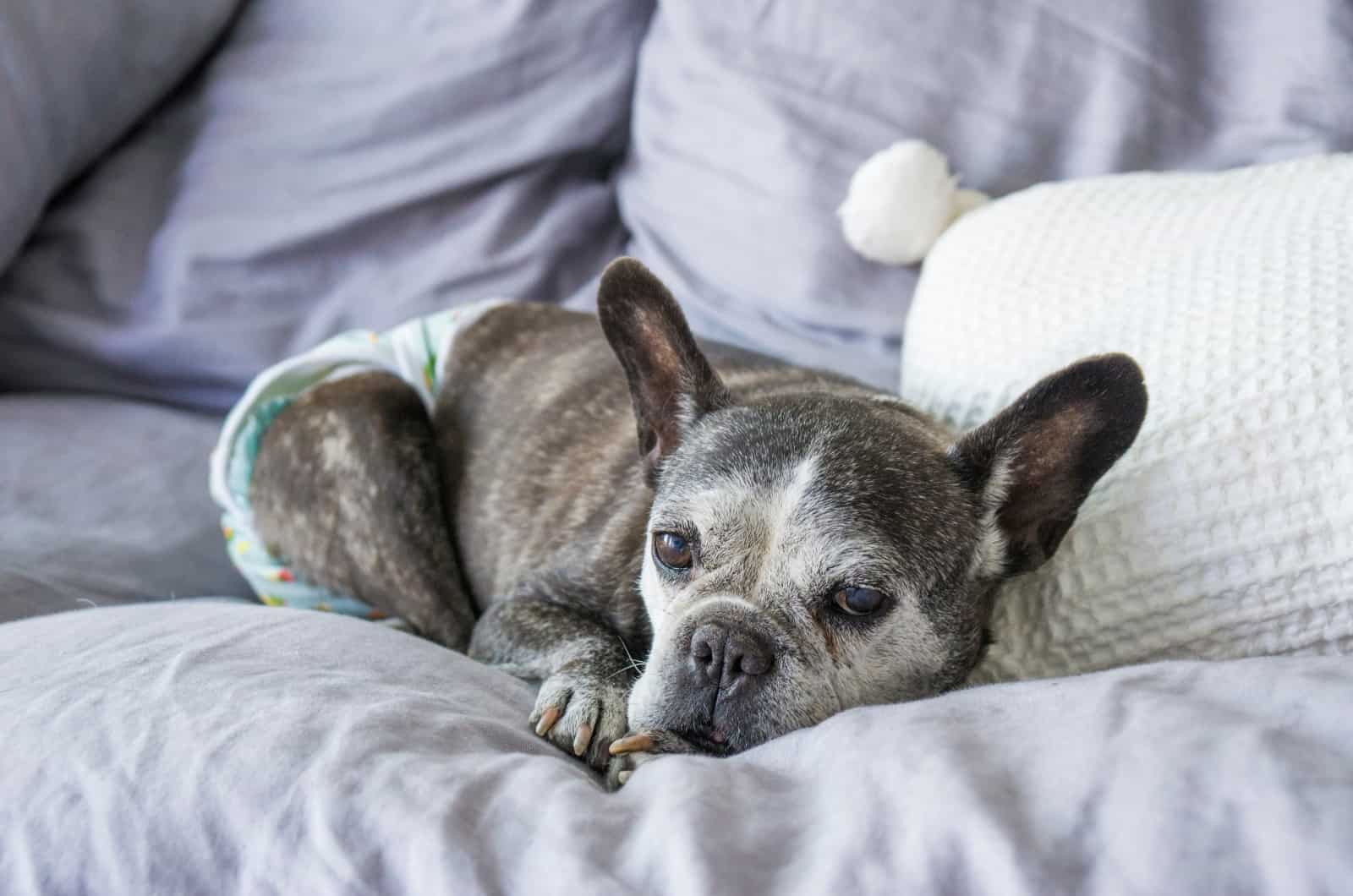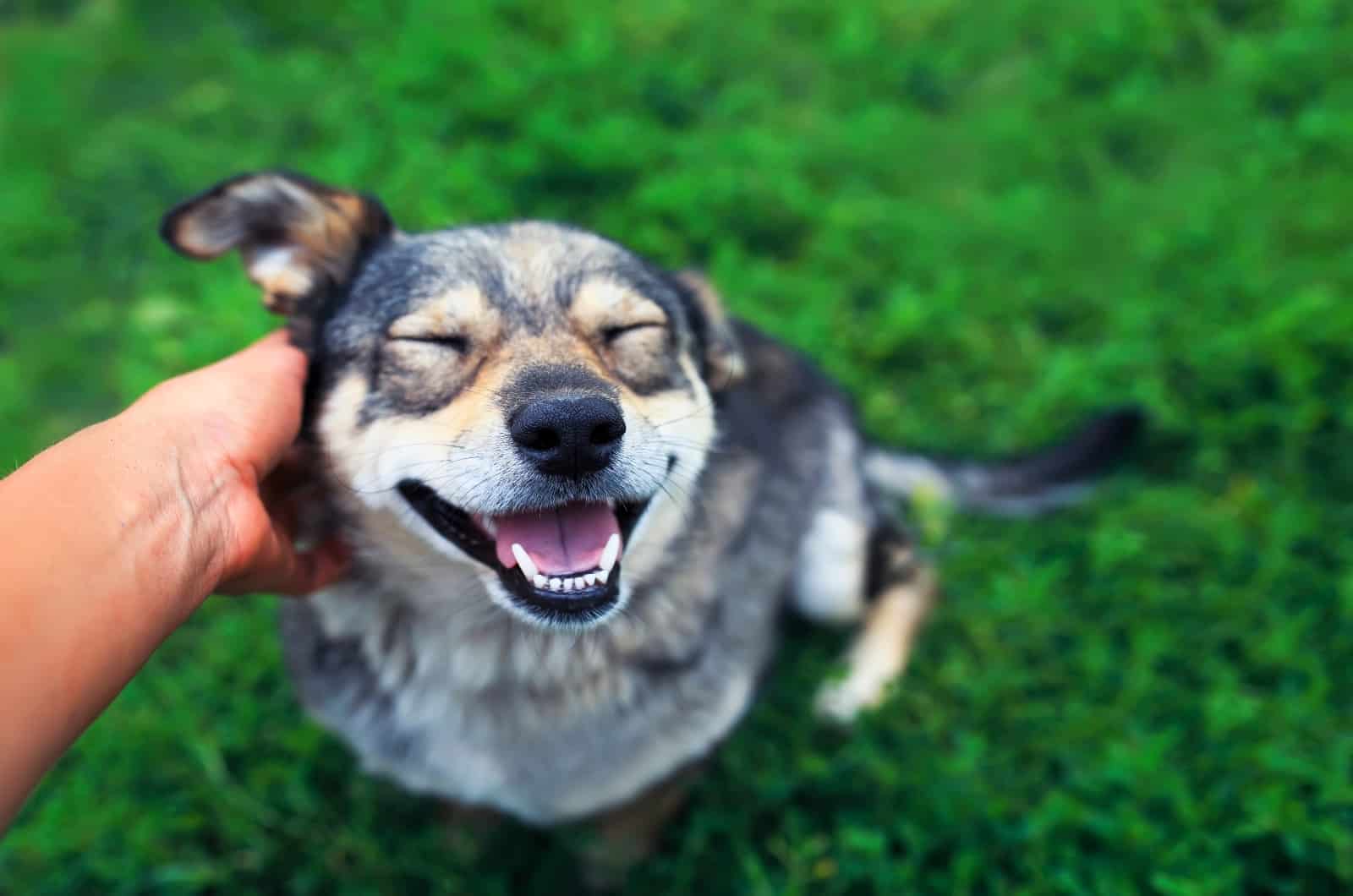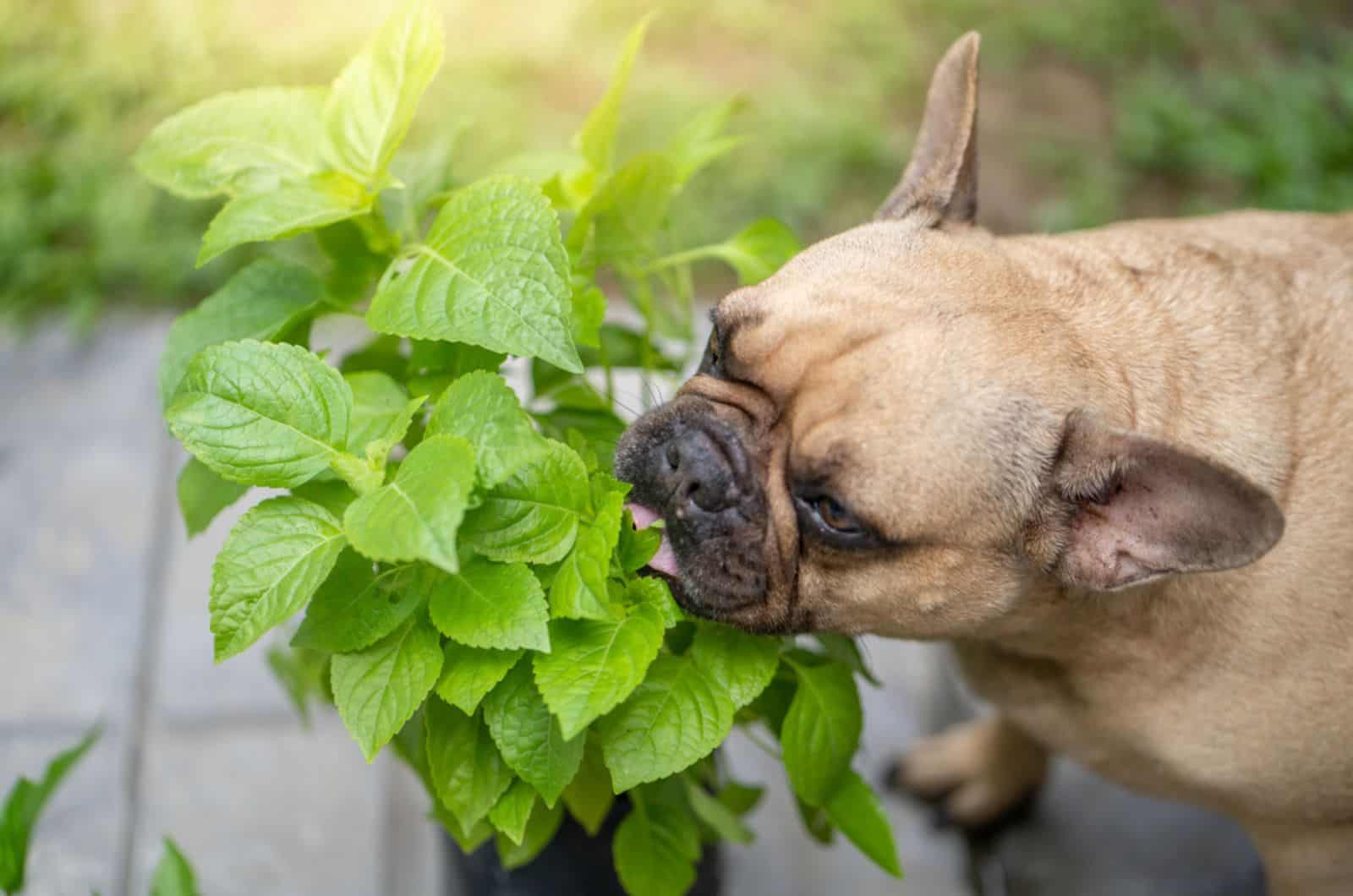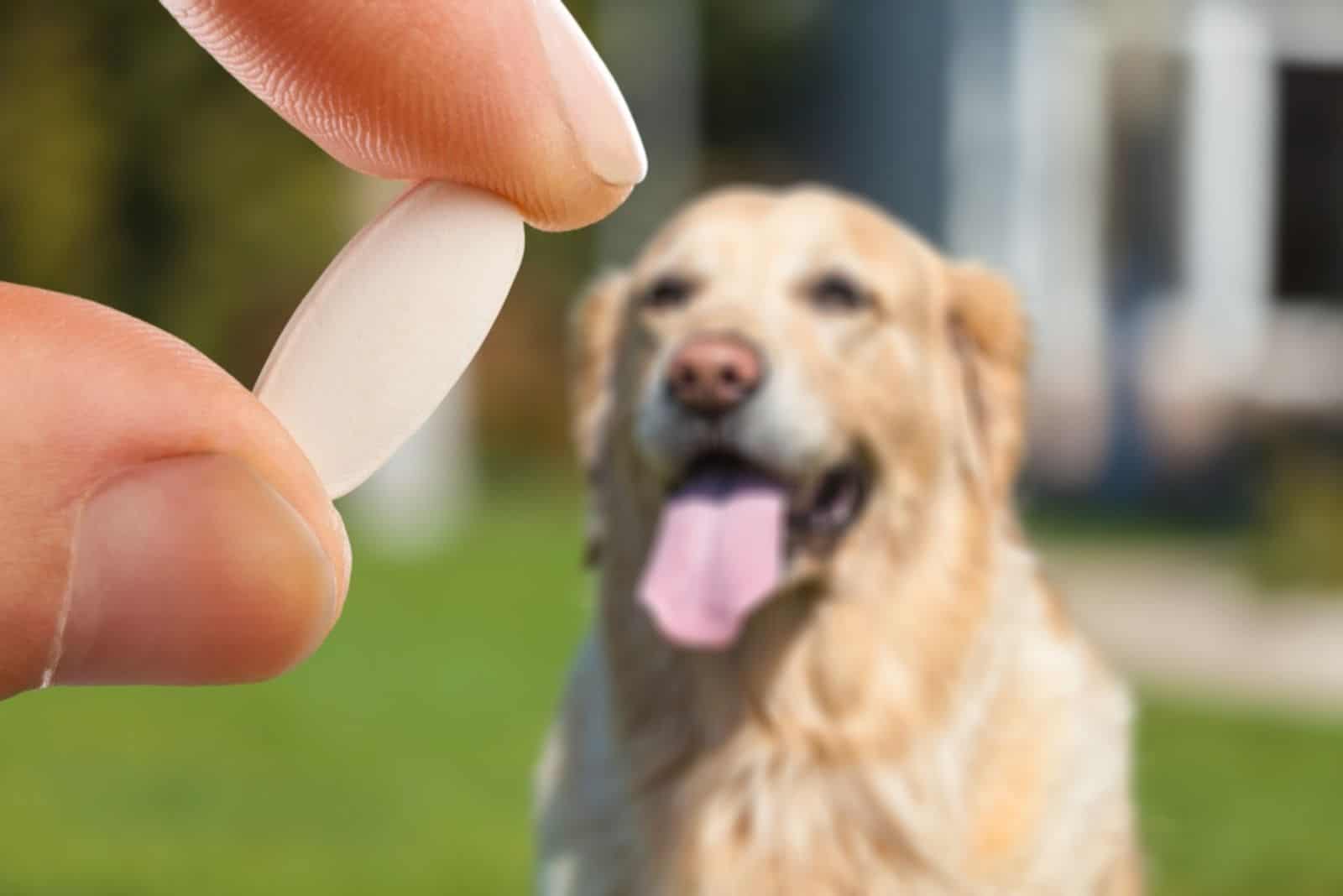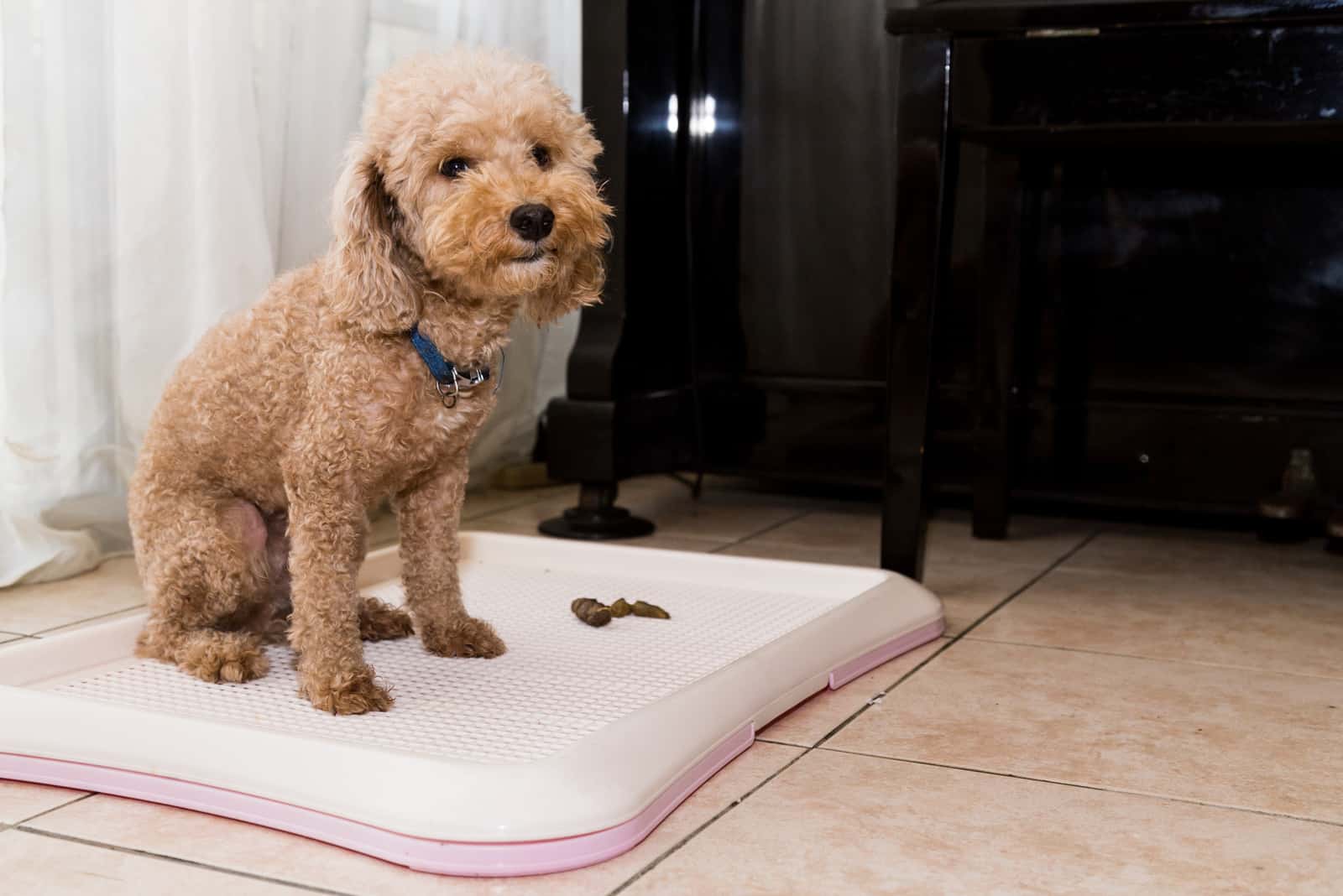The cause of your dog’s diarrhea could be colitis. This widespread ailment affects people, dogs, cats, as well as other animals, and frequently results in diarrhea, gas, and discomfort. However, stress colitis in dogs is something that every owner should pay attention to.
While there are numerous potential causes of colitis, stress is by far the most common. The excellent thing is that colitis is universally recognizable, and is frequently treated with medication and diet changes.
If your dog has colitis brought on by stress, you are aware of how upsetting and terrifying it may be. Stress colitis in dogs may have symptoms such as: vomiting, diarrhea, and other digestive issues.
The good news is that there are several things you can undertake to assist your dog in feeling better and recovering from colitis.
We’ve all experienced the bad effects of stress on our personal health, which might include weight loss, migraines, and head colds. Our canines are susceptible to the negative effects of stress, too.
Stress can impair a dog’s immune system, lead to body-wide inflammation, and increase the growth of pathogenic bacteria in the intestines, resulting in diarrhea or stress colitis. When the dog’s intestinal tract gets imbalanced, the result could just be this illness.
The symptoms of colitis are easily recognizable, making this illness easy to notice and understand. There may be some underlying bacterial infections, though, that you might need to check. However, a bland diet does the trick almost every time!
Learn more about canine stress colitis in the following paragraphs, including its causes, signs, and available treatments.
What Is Doggy Stress Colitis?
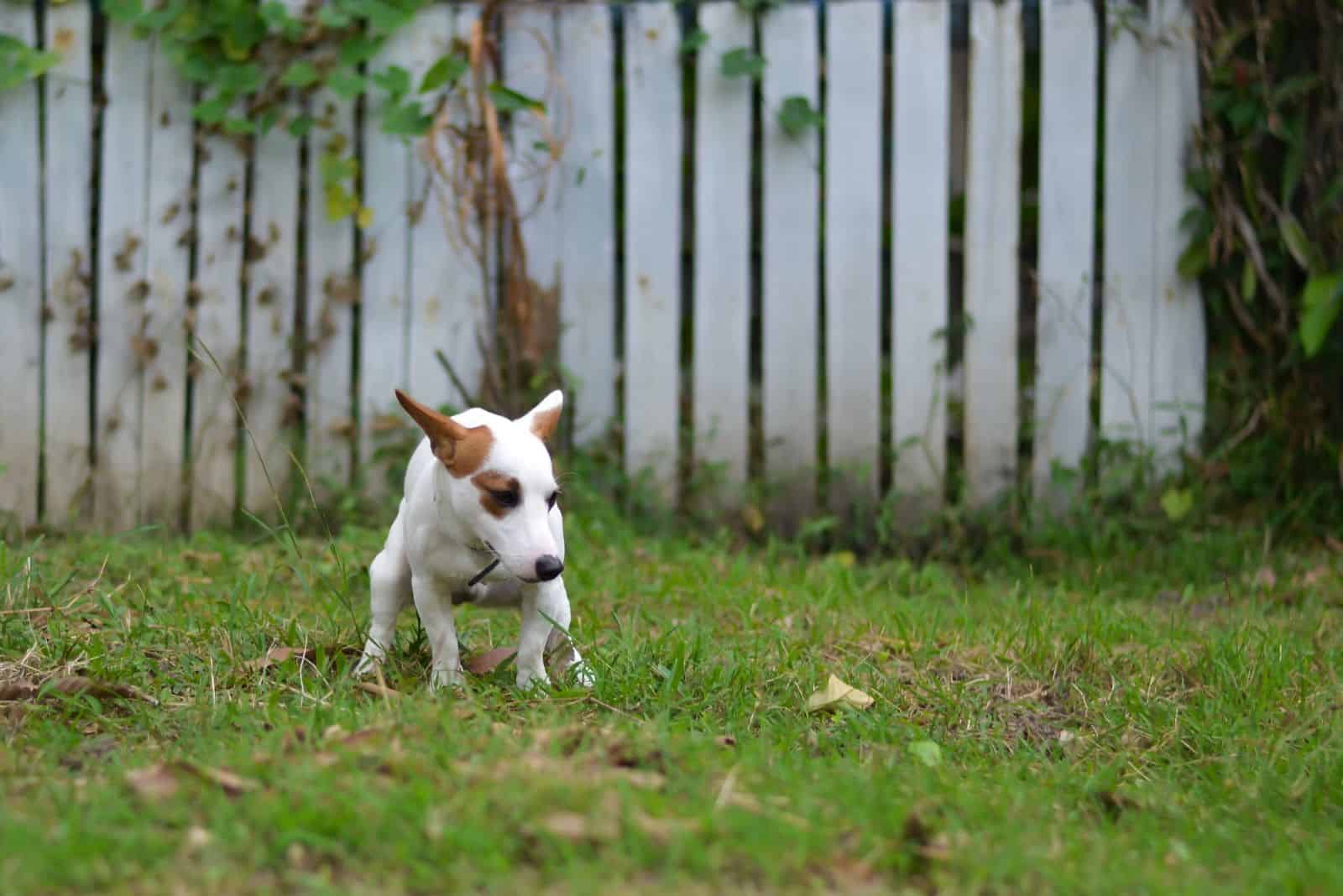
Dogs can experience IBD (inflammatory bowel disease) and IBS (Irritable bowel syndrome), among other gastrointestinal disorders.
When compared to IBS, which is a condition marked by cramping and pain in the abdomen as well as diarrhea and constipation, irritable bowel disease is a persistent inflammation of the gastrointestinal tract’s lining.
Colitis is a typical sign of canine IBD and IBS. Large intestinal inflammation, known as colitis, can result in severe diarrhea, hemorrhage, and losing weight.
Chronic vomiting is a common symptom of canine colitis. This type of acute colitis can be brought on by emotional factors like separation anxiety or schedule changes.
Colon, or large intestine inflammation, is known as colitis. Acute (temporary) or chronic colitis (long-lasting) are both possible. In our canine friends, acute colitis is frequently brought on by stress-related colitis, also known as doggy stress colitis.
Acute colitis in dogs can also result from parasite infections, bacterial infections, and abrupt dietary changes. If your dog is used to a certain brand of organic dog food, changing it with some dog food containing additives will definitely disrupt the dog’s bowel movements.
If the diet change must happen, it would be the best option to introduce the new dog food together with cooked rice or with the previous dog food that your dog consumed. Changes in your dog’s regular diet may not always have positive outcomes, especially if the dog is elderly.
If the dog is younger, and doesn’t have any serious health conditions, you won’t have to pay much attention when you are changing your dog’s diet. However, senior dogs have a weaker immune system, which leads to a harder time adjusting to changes.
What Is Inflammatory Bowel Disease?
Consistent inflammation of your dog’s colon or digestive tract is a symptom of inflammatory bowel disease (IBD).
They are unable to digest food properly because the ongoing inflammation harms the membrane of their gastrointestinal tract. If minerals are not digested as they ought to be, it might also result in other health issues.
IBD and irritated bowel syndrome (IBS) have some symptoms, although the two disorders are fundamentally distinct from one another. An excessive proliferation of aberrant inflammatory cells is a physical anomaly that characterizes inflammatory bowel disease.
The large intestine is largely affected by irritable bowel syndrome, which is typically brought on by stress, dietary changes, or illness.
IBD in dogs has no one particular etiology, and doctors can’t fully comprehend the illness. They speculate that the immune reaction to other underlying illnesses may possibly be IBD.
Inquiries about the signs of your dog’s illness will be made by the vet. If they have reason to believe your dog has IBD, they will need to take a biopsy of the membrane of the gut to make a diagnosis.
The biopsy will demonstrate the severity of the illness, and confirm the existence of inflammatory cells.
Blood tests and a fecal check may be performed before a more intrusive biopsy is carried out. If your dog’s veterinarian suspects IBD, ultrasound scans and X-rays are also frequently performed. These can aid in excluding other scenarios such as parasites, cancer, or disease.
What Is Irritable Bowel Syndrome?
A dog’s diarrhea cannot be explained by any other condition, so the diagnosis of irritable bowel syndrome is one of exclusion.
In dogs with irritable bowel syndrome (IBS), the intestinal muscles don’t work properly, which results in diarrhea and constipation.
Diarrhea as well as constipation are the two main signs of irritable bowel syndrome in dogs. Usually, the diarrhea is extremely liquid, and has little to no form.
Constipation or diarrhea may either be persistent or it may subside after several episodes. Each episode might start suddenly, and the dog may experience stomach pain and gas.
A major digestive issue in dogs is irritable bowel syndrome. This indicates that the intestines’ muscles do not function properly.
Food is moved from the mouth towards the anus by the normal intestinal muscle in a regular pattern, known as peristalsis. Muscles that have irritable bowel syndrome don’t contract in synchrony nor do they move very quickly or slowly.
Food allergy or stress-related factors may be the cause of irregular motility seen in IBS.
Once your dog’s IBS has been diagnosed by your vet, it can be treated with food and medicine. Probiotics and antidiarrheal medications can help balance the gut flora and reduce diarrhea in your dog’s IBS episode.
A change in nutrition may be advised by your veterinarian. Feeding a meal that is highly nutritious and contains more fiber aids in reducing intestinal inflammation and in stopping diarrhea.
What Are The Common Causes Behind Stress Colitis In Dogs?

Stress colitis in canines may result from any kind of stress.
We have learned about the detrimental effects that stress may have on dogs from a study on the intestinal microflora-combination of microorganisms involving bacteria and other living organisms that reside inside the gastrointestinal tract and intestines.
Tension will increase the number of undesirable gut bacteria while decreasing the quantity of helpful bacteria, which will result in symptoms of intestinal discomfort like diarrhea.
Anything that causes physical stress, such as having surgery or engaging in strenuous exercise, in addition to psychological stress, like boarding at a facility, moving to a new residence, or welcoming a new child or pet into the family, can be considered stressors that cause colitis.
Tension, worms, viruses, trauma, allergic colitis, and primary inflammatory bowel disease are among the factors that contribute to colitis. These include Giardia, Cryptosporidium, and whipworms.
Additionally, colitis can develop as a result of consuming contaminated food, coming into contact with deceased pets, or long-term exposure to a moist environment. One of the main reasons why big bowel diarrhea develops in all dogs is stress colitis.
Usually, stress colitis does have an underlying issue behind it, and it may either be physical or emotional. The most common causes are eating bad food, and emotional triggers from past traumatic events or stressful events for the dog.
For older dogs, there are many causes that may add to the story. Older dogs usually have a weaker immune system, and therefore, are more prone to colon cancer, which must be checked by biopsies.
What Are Common Symptoms Of Stress Colitis In Dogs?
Whatever the source, colon inflammation causes a reduction in water absorption and a reduction in the capacity of the colon to hold excrement. The typical symptom of this is regular, mild diarrhea, frequently accompanied by blood or secretions.
The majority of dog owners say that they frequently notice small amounts of semi-formed to watery excrement. It will be easy to trace those excrements if your dog is living in your house, but you will need to pay more attention to these details if your dog lives outside.
Throughout and after defecation, many dogs may strain, and little traces of bright red blood may frequently pass at the end of the process. Many chronic colitis cases also involve the presence of mucus or fat.
The majority of canines with colitis will show signs of urgency and a frequent need to urinate. Only one-third of canines that have colitis or diarrhea actually vomit. Losing weight in large amounts doesn’t really happen if treated early.
However, weight loss is typical if stress colitis in dogs is acute and the dog’s immune system just cannot fight off the bacterial infection.
Hiding from everybody, low energy, sleeping more, loss of appetite, not drinking enough water, and dirty areas around the anus are all symptoms of stress colitis in dogs.
How Can I Help My Dog That Has Stress Colitis?
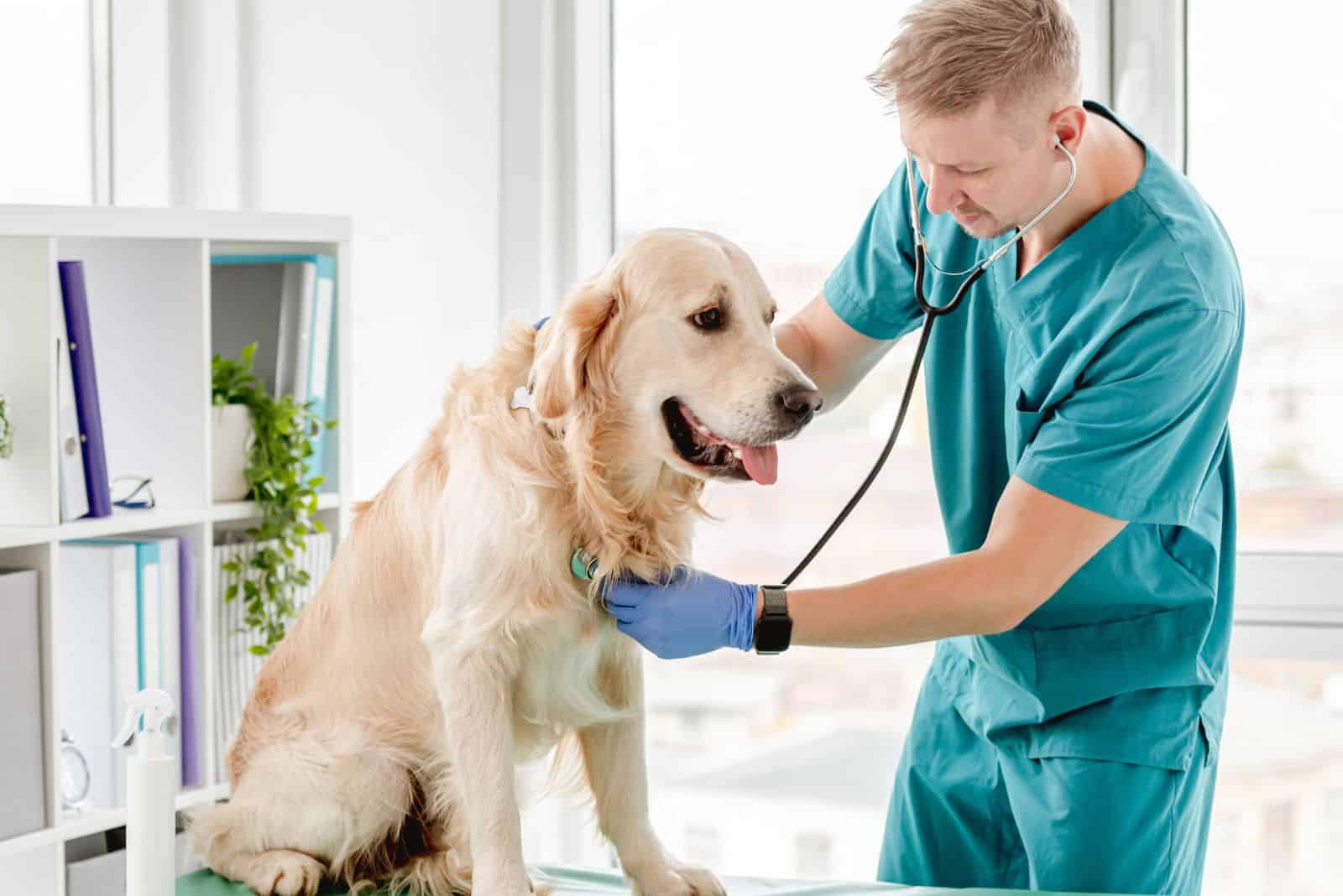
The best course of action will depend on the precise etiology of colitis.
Fasting for 24 to 48 hours, eating a low-residue or hypersensitive diet, boosting the amount of dietary fiber in the diet, and incorporating fermentable fiber, like prebiotic fiber or beetroot into the food, are all examples of non-specific treatments.
Low-fiber diets may be more beneficial for some canines with colitis. For more details on the significance of diet and nutrition for canines with colitis, refer to the brochure, “Nutrition for Dogs with Colitis.”
Depending on the diagnosis for your dog, antibiotics can be recommended. In cases with immune-mediated or inflammatory colitis, anti-inflammatory or immunosuppressive medications may be administered. Drugs that alter the motility of the colon may also alleviate symptoms.
Stress colitis is certainly more likely to occur in dogs that are typically more tense or anxious. Although it can happen to dogs at any time of life, younger dogs are more likely to experience it. There is no reported breed of dog that has a higher risk of getting stress colitis.
Determining the cause of canine colitis is the first step in treating it. Your dog’s medical history will be discussed with you by the vet, who will then conduct a physical examination.
The veterinarian will then perform fecal tests to look for diseases and parasites in the feces. In order to check for malignancies and GI foreign things, abdominal X-rays could be required.
To evaluate electrolyte balance, white blood cell counts, and body functions, blood tests may also be advised.
Diagnosis
Stress colitis in dogs cannot be detected with a specialized test. The best course of action is to bring your dog in to your vet for a medical checkup if he is exhibiting symptoms of stress colitis.
If stress colitis appears likely, your veterinarian will utilize the background you provide, the exam, and excrement testing to help make that determination.
Your veterinarian will, at the very least, advise running a stool test on your dog to look for parasites. This typically entails fecal floatation, which includes combining a stool sample with a solution, spinning it in a centrifuge, and letting it settle for a few minutes.
If parasite eggs are present, this would cause the majority of them to rise to the top of the fluid, where they may then be seen under a microscope.
Your veterinarian might also advise performing a Giardia ELISA test – an immuno test that is a more sensitive method for giardia, which is a microscopic parasite. This depends on the environment in which your dog lives.
Your veterinarian will diagnose stress colitis if no parasites are discovered in fecal testing, your dog exhibits symptoms of acute colitis, and if he has a background of a recent traumatic period, such as staying in a boarding facility.
The clinical indicators and medical history of your pet, a microscopic inspection of the feces, a pelvic exam, colon biopsies, and blood tests are all used to make the diagnosis of colitis.
In some circumstances, extensive testing might well be required, including radiography (X-rays) to check the dog’s colon and intestinal system for foreign bodies, colonoscopies and colorectal biopsies, fecal samples, barium enemas, and ultrasound examination of the abdomen.
Cecal inversion, IBS, colonic tumors (or polyps), and ileocecocolic intussusception are just a few of the conditions that these tests are crucial for ruling out.
Treatment
Your veterinarian could advise a bland, home-cooked diet like chicken breast as well as white rice, or a prescription diet designed to treat digestive tract discomfort. The symptoms your dog exhibits will typically determine how to treat stress colitis.
The best part is that stress colitis is believed to be a self-limiting illness, which means it will go away by itself without any therapy. There are, however, some foods, medicines, and supplementation that can hasten your dog’s recovery.
Your veterinarian might give subcutaneous fluids (fluids given beneath the skin) to your dog if it is only mildly dehydrated. Fortunately, stress colitis seldom results in significant dehydration that necessitates IV fluids and hospitalization.
In order to treat colitis in your dog, your veterinarian may prescribe anti-inflammatory drugs and antibiotics to combat the germs. It’s possible that your dog will also be required to take probiotics, which are microorganisms helpful to the digestive system.
Additionally, this can increase your pet’s resistance and immunity. Your dog may be able to relieve itself more easily, and combat the symptoms of diarrhea if it has healthy gut bacteria.
The good news about colon irritation is that it typically goes away on its own. This indicates that using medicine to treat this problem may not be necessary, and that other treatments may be used instead. The digestive system can rest by fasting.
A 48-hour fast for your dog may be advised by your veterinarian. To get the most out of it, don’t let them eat anything during this period. In order to avoid shocking their stomach, you can then gradually reintroduce additional food kinds into their diet.
Colitis can make it harder for a dogs’ digestive tract to absorb water. Your pet will experience diarrhea, fast weight loss, and dehydration as a result. In addition to a food that is high in fiber, you can choose to offer your dog fiber supplements.
Probiotics And Prebiotics
Talk to your veterinarian for guidance on selecting a daily supplement that is supported by research since there are numerous different types of probiotics, but they are still not approved by the FDA.
Prebiotics – substances that aid in promoting the development of healthy gut bacteria – might potentially be suggested for the treatment of stress colitis.
Prebiotics are now commonly found in prescription intestinal diets, and your veterinarian may also advise adding a prebiotic fiber supplement to your pet’s diet in order to treat stress colitis.
Acute colitis, including stress colitis, is still frequently treated with antibiotics like metronidazole. Antibiotics may affect the gut flora in the long run, and the evidence supporting their usage is inconclusive.
Probiotics are beneficial microbes that reside in the digestive system. An animals’ gastrointestinal system is home to billions of such bacteria as well as some yeast. These beneficial gut bacteria maintain a healthy interior environment in order to shield against illness and advance wellness.
A prescription medication called Librax (chlordiazepoxide/clidinium) may be helpful for dogs with known stress colitis brought on by specific events.
This medication was created to treat human irritable bowel syndrome (or IBS). This drug can be administered to pets right before any kind of stressful event the dog might face or at the first indication of digestive discomfort.
This drug should only be taken for relatively short periods, and only when under the guidance of a veterinarian because usage of it in dogs has not been investigated.
How To Prevent My Dog’s Stress Colitis
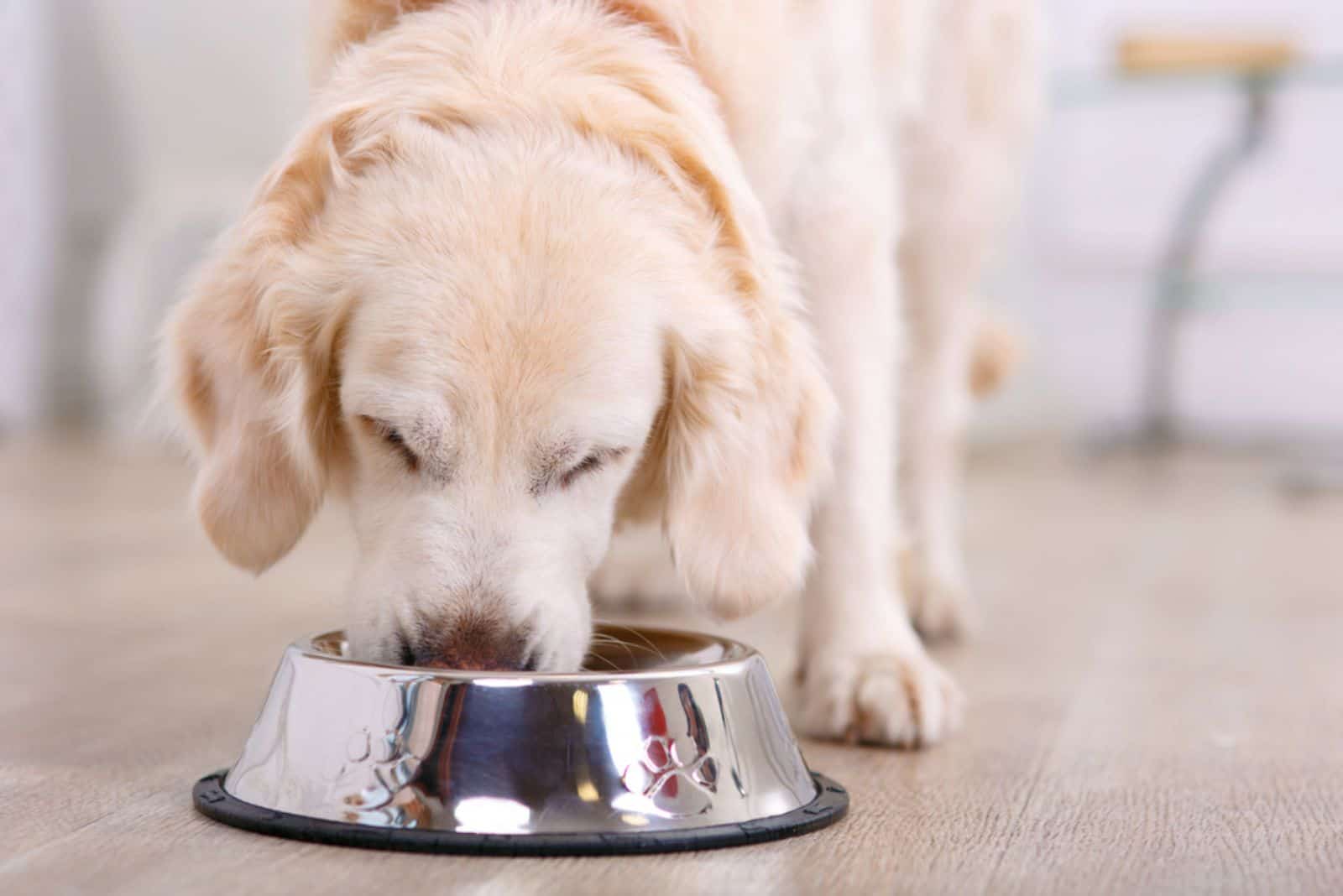
Let’s face it — doggy stress colitis can really be awkward for pet parents, and definitely uncomfortable for the dog.
In severe cases, a constant loose stool and too many bowel movements can leave your dog dehydrated, even causing the dog to become unconscious.
Your veterinarian or canine behaviorist may suggest the following measures to prevent the signs of stress colitis if your dog has a tendency of acquiring it in stressful situations:
- feeding your dog a prescribed diet that doesn’t trigger the harmful bacteria
- providing a probiotic every day to reduce the risks of inflammation of the colon
- using a spray with calming ingredients (such as CBD)
- providing a supplement to enhance calmness
- providing a prescribed anxiety drug that your vet advises for your dog to use
- managing anxiety by working with a canine behaviorist
- removing the stress triggers (fireworks, thunderstorms) or at least managing your dog’s triggers by reducing exposure to them
The aforementioned may be suggested for a brief period of time — before, as well as during stressful situations — as if it’s something that becomes a regular part of your dog’s routine, according to the extent and frequency of your dog’s colitis and behavioral changes.
There are many treatment options; however, the best one is prevention. Add boiled pumpkin or pumpkin puree to your dog’s daily meals, add raw or cooked meat, and try to get away from dog food with lots of additives.
How To Feed My Dog That Has Stress Colitis Or Is Prone To It
When feeding a stressed-out dog with colitis, there are some things to keep in mind. It is crucial to understand that colitis is a large intestine ailment that can either be acute or chronic.
Whereas an infection often causes acute colitis, anything from food intolerance to stress can cause chronic colitis.
The objective of nourishing a dog having colitis is to give him nutrients that won’t make his condition worse. As this is a disease that responds to fiber, this implies eliminating foods that are heavy in fat or in nutritional fiber as well as those that have colorants or additives.
Making sure your dog has access to a lot of fresh water is also essential. Adding supplements such as pumpkin puree or boiled potatoes are a great way to help your dog with its poop problems.
Also, if your dog does not experience these problems at the moment, it would be wise to implement the cooked rice and cooked chicken breast diet from time to time. It is highly beneficial for your dog’s health since it does not contain any additives.
Additives often serve as a trigger to stress colitis because many dog foods out there basically put garbage and terrible leftovers in the dog food ‘recipe’. In this case, home remedies, such as cooked meals from scratch will work wonders.
As you would give cooked rice to your partner or child when they are having diarrhea or a loose stool, the same goes for your dog. When feeding a stressed-out dog with colitis, there are some things to keep in mind.
Making sure your dog has access to a lot of fresh water is very essential.
What Is The Prognosis For Stress Colitis In Dogs?
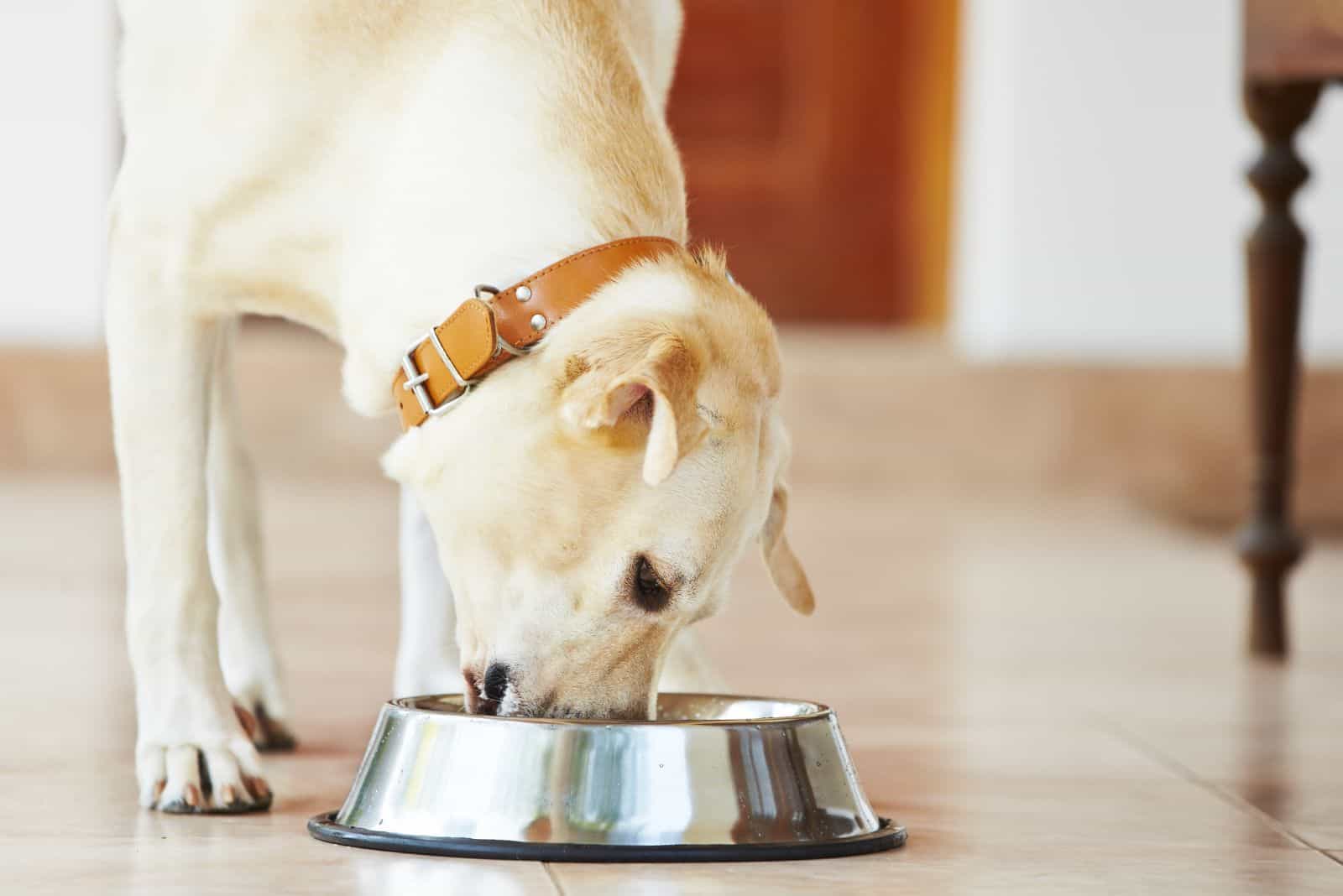
Good news for doggies suffering from colitis: one of the main reasons why dogs get colitis is stress. For the majority of dogs, the inflammation or illness in the colon can be treated with a straightforward diet change and therapy.
Most canines that have stress colitis fully recover in three to five days. Additional diagnostic procedures should be carried out to identify the precise cause and the best course of action in chronic, acute, or recurring instances.
Strict dietary restrictions and thoughtful drug administration help most dogs with chronic colitis keep their illness under control.
Although canine colitis can be extremely dangerous and even fatal, it is treatable with the appropriate course of action. Always ensure that you thoroughly obey your veterinarian’s advice if your pup has been diagnosed with colitis.
And, don’t be afraid to ask for assistance if you have any questions or worries. We adore our animal companions, and wish for them to have a long, happy life!
FAQs
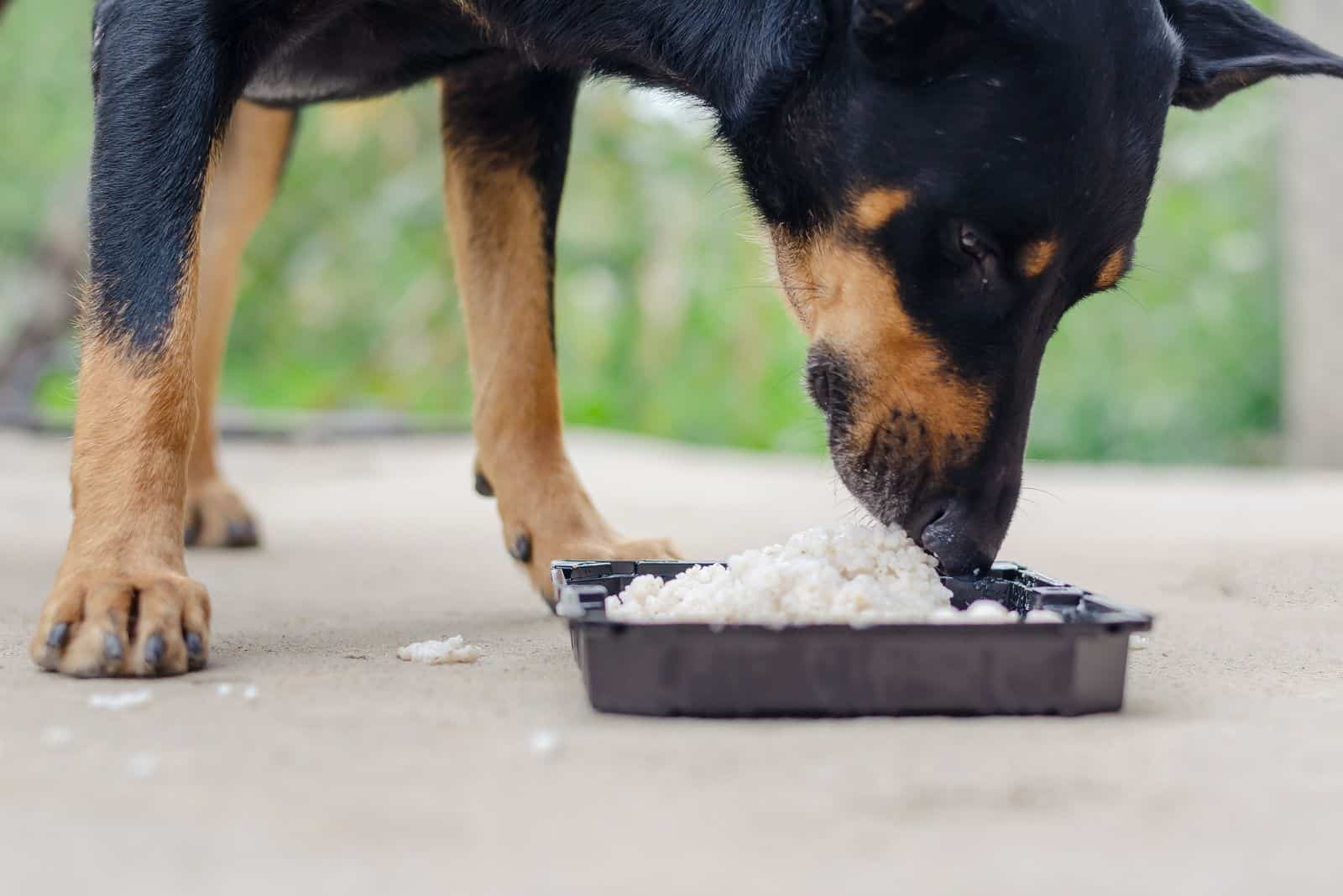
There are some interesting questions that I wanted to make sure that you completely understand and have the answer to. Because of that, the FAQ section is just below!
This will depend on your dog’s age, immune system, and level of dehydration.
If your dog has been experiencing this problem for more than 3 days, and it appears that you cannot get rid of it with home remedies, then your dog needs help from a vet.
Often, this illness goes away on its own, especially when the dog is younger, stronger, confident, and fed with balanced meals.
There are, however, some foods, medicines, and supplements that can hasten your dog’s recovery.
The symptoms your dog exhibits will typically determine how to treat stress colitis.
Your veterinarian might give your dog subcutaneous fluids (fluids given beneath the skin) if it is only mildly dehydrated.
Fortunately, stress colitis seldom results in significant dehydration that necessitates IV fluids and hospitalization.
Your veterinarian could advise a bland, home-cooked diet like chicken breast and white rice, or a prescription diet designed to treat digestive discomfort.
Pet owners usually need to provide this diet to their dog for between three and five days (or when the symptoms go away) before gradually reintroducing their dog’s regular diet.
Your dog’s triggers may be quite unexpected.
The first thing that you have to pay attention to is if your dog is adopted or purchased from a reputable breeder.
Sadly, adopted dogs may have some trauma or stress triggers that you may be activating unconsciously, and they happen to trigger your dog’s stress colitis.
For example, for some adopted dogs, the trigger may be loud noises or shouting. If your family naturally talks louder or shouts, you may be triggering your dog’s sensitivity to sound due to past trauma, leading to stress colitis in dogs.
You must pay attention to how your pet reacts in those kinds of situations. If you see your pet shaking, panting, or trying to hide somewhere, then there is a high possibility that you have done something that triggered its anxiety (still talking about adopted dogs).
However, stress colitis may just be triggered by some underlying health issue – it does not necessarily have to be psychological or trauma-based.
If your dog has problems with its large intestine, or if it has a weak immune system or irregular bowel movements, it might be the case that your dog needs professional help. Many dogs suffer from IBS or IBD, which are both treatable and manageable.
There isn’t one single trigger that does it for all dogs. Each and every dog is different.
There are two prevalent side effects when it comes to stress colitis in dogs. These side effects are also applied to any type of mammal when it comes to this illness.
The two main side effects are dehydration and weight loss.
It is almost inevitable that your dog will lose weight because this illness usually lasts at least three to five days. During this time, your dog will basically throw up anything that it consumes until either the microbiome balances itself, or with the help of medicine.
Just as we have problems with a sensitive stomach, and cannot consume anything except warm tea and cooked rice, pretty much the same goes for your dog.
Also, just as we lose weight when we are exposed to vomiting and a loose stool, dogs do, too.
However, don’t be afraid of this since it is a natural occurrence. Your dog will be strong once again in no time.
When it comes to these side effects, the best home remedies are fresh water and boiled chicken breast, together with rice. This is easy to digest, and it will give your dog the energy and the strength to fight this illness.
Your dog probably either ate something that irritated its belly or it had a stressful situation; therefore, the prognosis is: let your dog rest and be stress free, together with feeding it cooked food, and your dog will be completely fine.
By feeding your dog a minimal diet, you may control canine colitis in a healthy way. Low-residue foods are those that may be quickly and easily digested, allowing for improved absorption into the body.
This benefits their digestive system by lowering the amount of trash they must pass. In other words, less residue means your dog’s stomach will have less work to do when it comes to digestion, which will make your dog’s eating and bowel movements easier.
In most cases, your dog won’t be having any serious life-threatening prognosis.
However, if the dog in question is a senior dog, you might have to do a colon biopsy.
There is a possibility of an underlying bacterial infection or cancer, at worst, but let’s not always search for the worst possible scenario.
Try to make your dog feel comfortable when it is experiencing stress colitis. Make him feel cozy and warm since dehydration might make the dog’s body temperature drop. Favorite toys around your dog always help!
Also, avoid petting its belly area, especially the lower belly since it is extremely sensitive when the dog is experiencing the symptoms of this illness. Your dog might be cranky or nervous.
It would be wise to use dog diapers if your dog is living indoors. Stress colitis can make your dog leave unintentional poop stains around the house, and no one from the household would enjoy those. Therefore, playing smart in this case is a good strategy.
There is nothing spectacular about it. I advise either bringing a tiny, airtight bag to collect feces whenever you walk your dog, or scoop out the cat’s litter box soon before a visit to the clinic. Pick up a little piece, using the bag as a glove.
Using a plastic spoon to gather a small quantity to put in the bag may also be a good idea.
If possible, obtain a sample no later than six hours before the visit. A fresher specimen is preferable for detecting eggs and larvae. If it will take more than a few hours, put it in two or three bags, and keep it in the refrigerator until you’re ready to depart.
If your pet doesn’t go potty the morning of or in the afternoon of the exam, then your veterinarian would appreciate receiving a fresh sample whenever it’s practical. So, don’t worry if you have to bring it at a different time.
If you have many pets sharing a litter box or a bathroom, bring in three different samples just to be safe.
You don’t need to give your veterinarian the entire stack; less than one teaspoon will be sufficient for the test. Simply place a small quantity in the bag, tightly seal it, and discard the remainder.
Don’t get upset if something shows up on your pet’s fecal test because around one-third of pets at some point have worms or bacterial infections.
Additionally, always bring a stool sample with you if you’re either bringing your pet in for an annual checkup or to be treated for nausea, vomiting, or lethargy.
It’s crucial for your pet’s health and the health of everybody in your household to get their stool examined annually.
Final Word
Stress colitis in dogs is a disease where food and medicine management is a game changer when it comes to the dog’s health. Knowing your dog’s food allergy, adding supplements that help your dog’s digestive system, and preventing the causes of colitis will do the job.
If you are wondering why your dog poops so much, especially with a runny or loose stool, this is just the place for you.
The majority of acute colitis cases respond well to simple medical care. However, flare-ups may occur at any time during the course of the dog’s life if it has chronic colitis, particularly if it also has inflammatory bowel disease.
These dogs might have to consume a specific diet that is advised by their veterinarian. Drugs are frequently used to treat flare-ups. Dogs with such chronic diseases might require routine checkups at the clinic.
Advanced diagnostic tests can be necessary if diet and drugs aren’t working. A colonoscopy or MRI may be advised by your veterinarian to look for more serious conditions. This can entail a recommendation by a veterinarian who specializes in internal medicine.
If you have an elderly dog, we don’t advise changing your dog’s regular food. Adding boiled rice or pumpkin purée to your dog’s daily meals will help with digestion, and make your and your dog’s life easier. However, younger dogs are more flexible to diet changes.
Usually, this is known as a disease either with dogs from shelters or with traumatized dogs. Anytime they are faced with a trauma trigger from their past, stress colitis may activate, or a flare-up might happen.Your dog may just have a weak immune system, and therefore, the stress colitis may become acute. In that case, regular vet checks are a must, together with a balanced diet.

